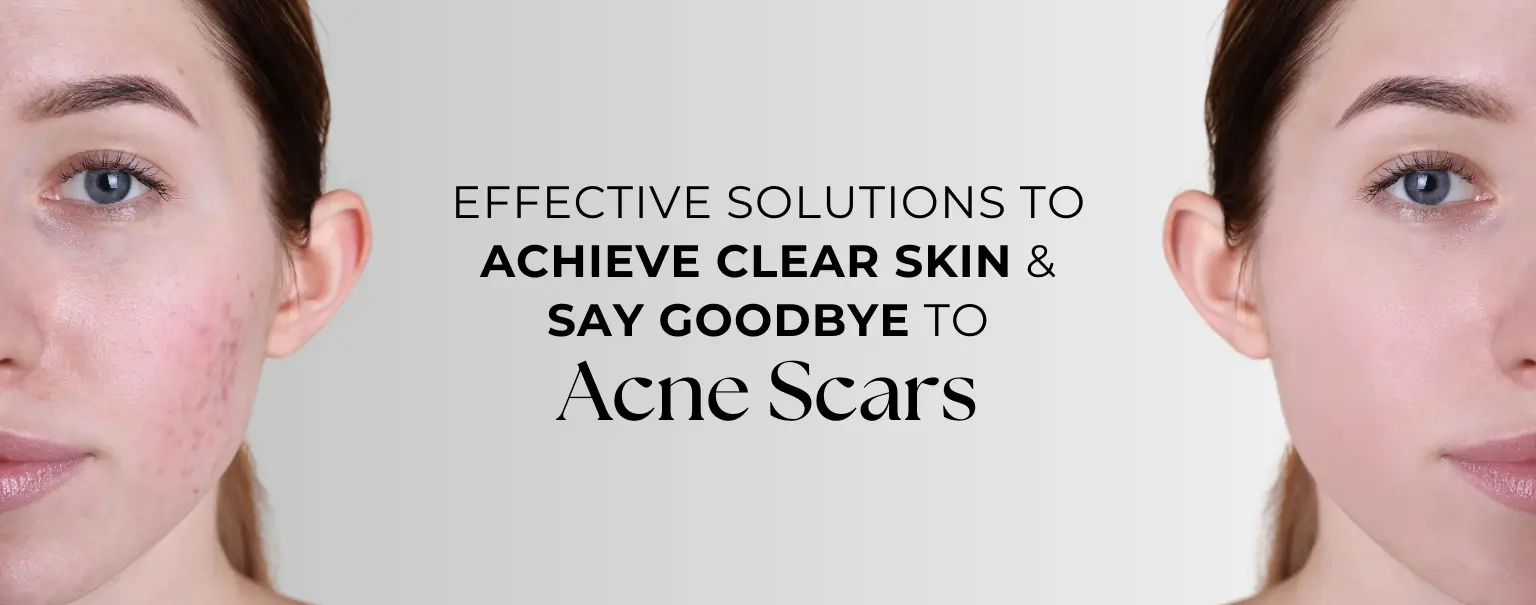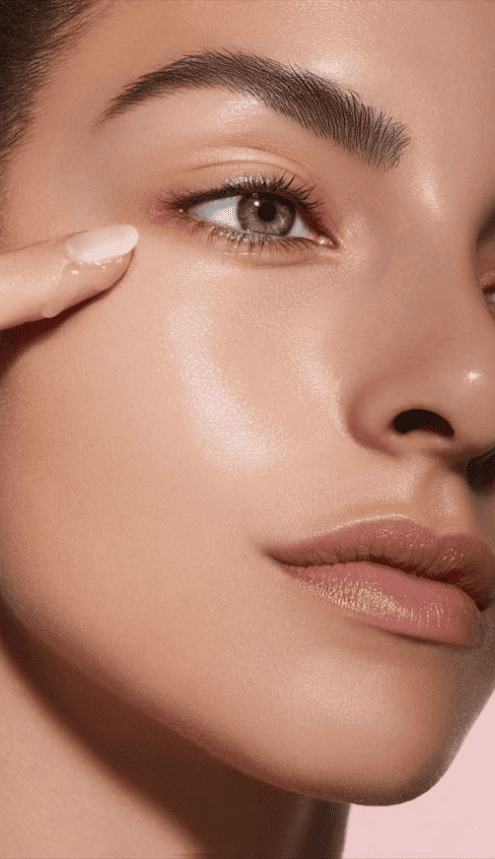Picture this: Your skin is the star of a blockbuster movie. The opening scene is radiant, dewy, and glowing – a classic Hollywood dream. However, every great story needs a plot twist, and here comes Acne, crashing onto the set like an uninvited antagonist. You fight it off, thinking the battle is won, only to realize a new challenge emerges – the stubborn sidekick nobody asked for: Acne Scars.
You must realize one thing: If you want acne to stay away from you, you must build up a skincare routine.
Consistency is key. Cleansing, moisturizing, and sun protection can drastically improve your skin’s health. Use a gentle cleanser to remove dirt and oil without stripping your skin of moisture. Follow it up with a non-comedogenic moisturizer to keep your skin hydrated.
Two Most Common Types of Acne Scars
Acne scars are categorized based on their appearance and how they affect the skin. The most common types are:
Atrophic (Depressed) Scars
- Ice Pick Scars: Deep, narrow, pitted scars resembling small holes.
- Boxcar Scars: Broad, rectangular depressions with sharp edges.
- Rolling Scars: Wavy or undulating scars that make the skin appear uneven.
Hypertrophic (Raised) Scars
- These scars are raised and protrude above the skin surface. They often occur when the body produces excess collagen during the healing process.
Causes of Acne Scars
Acne scars result from the body’s healing response to acne lesions, especially when inflamed or improperly treated. Key causes include:
- Inflammatory Acne: Severe acne (e.g., cysts and nodules) penetrates deeply into the skin, damaging tissue beneath the surface.
- Delayed or Improper Treatment: Not treating acne promptly can lead to prolonged inflammation, increasing the risk of scarring.
- Picking or Squeezing Acne: Physical manipulation damages the skin and underlying tissues, leading to scars.
- Excess or Insufficient Collagen Production: During healing, the body produces collagen to repair damage. Too much collagen results in raised scars, while too little results in depressed scars.
- Skin Type and Genetics: Some people are more prone to scarring due to their skin type, healing process, or genetic predisposition.
- Infection or Re-Injury: Secondary infections or repeatedly injuring healing acne can worsen scarring.
Now that you know the basics, let’s dive a little deeper into acne scar treatments:
5 Tips on How to Treat Acne Scars
Protect Your Skin from Sun Damage
Sun exposure can worsen acne scars by increasing pigmentation and slowing healing. Apply a broad-spectrum sunscreen with SPF 30 or higher daily, regardless of the weather. Look for sunscreens with zinc oxide or titanium dioxide to minimize skin irritation.
Use High-Quality Products for Acne Scars
Targeted topical treatments can work wonders in fading acne scars. Legit medical aesthetic products with ingredients like retinoids, vitamin C, and niacinamide are excellent choices. Retinoids stimulate collagen production and accelerate cell turnover, while vitamin C brightens the skin and reduces pigmentation. Niacinamide helps improve skin elasticity and minimizes the appearance of scars.
*Only use trusted, medically approved brands to avoid adverse effects.
Stay Hydrated
Adequate water is essential for keeping skin hydrated and healthy. Dehydration can highlight scars and give skin a lifeless appearance. Drink at least eight glasses of water daily, and consider including water-rich foods like cucumbers and melons in your diet, as well as herbal teas.
Avoid Picking or Popping Pimples
Picking at your skin can cause infections, further irritation, and long-lasting scarring. To lessen inflammation and hasten healing, avoid popping zits. Instead, apply spot treatments with salicylic acid or benzoyl peroxide.
Consider Professional Treatments
Sometimes, at-home treatments may not be enough to address stubborn scars. Professional options like chemical peels, microneedling, laser therapy, and dermal fillers can significantly improve your skin’s appearance. Here are the benefits they offer:
- Chemical Peels: Exfoliate dead skin layers to reveal smoother skin beneath.
- Microneedling: Stimulates collagen production to reduce scar depth.
- Laser Therapy: Targets deeper scars effectively for visible improvement.
- Dermal Fillers: Add volume beneath the skin, levelling out depressions caused by atrophic scars (such as ice pick, boxcar, or rolling scars).
Consult a dermatologist for the best treatment for your skin type and concerns.
Try Natural Remedies
For those who prefer a more holistic approach, natural remedies can help improve the appearance of scars. While results may take longer, consistency is key.
- Aloe Vera: It reduces redness, encourages healing, and soothes inflammation. Apply fresh aloe gel directly to the scars every day.
- Honey: Raw honey has therapeutic and antimicrobial qualities. Apply it as a mask or spot therapy to gradually lighten scars.
- Rosehip Oil: Packed with antioxidants and vital fatty acids, rosehip oil improves scar texture and restores skin.
- Lemon Juice: This is a natural skin-brightening agent. It should be used sparingly, though. Sunscreen should always be applied afterward, as it can increase skin sensitivity to UV radiation.
Achieving clear skin and fading acne scars may seem challenging, but it is possible with the right solutions, dedication, and care. By incorporating a balanced skincare routine and choosing products tailored to your skin type, you can achieve the radiant and scar-free skin you have always desired.





